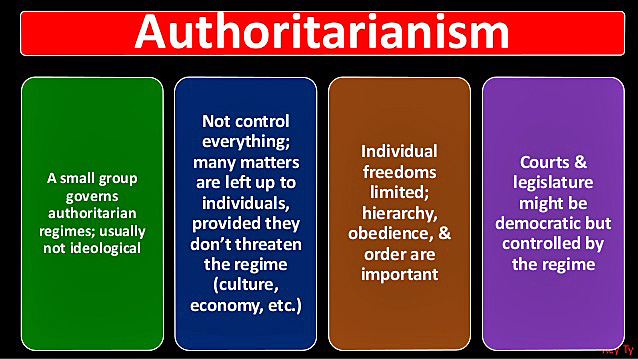PBS: Escaping Eritrea … [Read More...] about ካብ ውሽጢ ቤት ማእሰርታት ኤርትራ
COMPETITIVE AUTHORITARIANISM
Steven Levitsky and Lucan A. Way:
“Politics…is not like football, deserving a level playing field. Here, you try that and you will be roasted.” Former Kenyan President Daniel arap Moi.
What is Competitive Authoritarianism?: Competitive authoritarian regimes are civilian regimes in which formal democratic institutions are widely viewed as the primary means of gaining power, but in which fraud, civil liberties violations, and abuse of state and media resources so skew the playing field that the regime cannot be labeled democratic. Such regimes are competitive, in that democratic institutions are not merely a façade: Opposition parties use them to seriously contest for power; but they are authoritarian in that opposition forces are handicapped by a highly uneven—and sometimes dangerous—playing field. Competition is thus real but unfair.
Situating the Concept—Between Democracy and Closed Authoritarianism: Competitive authoritarianism is a hybrid regime type, with characteristics of both democracy and authoritarianism. 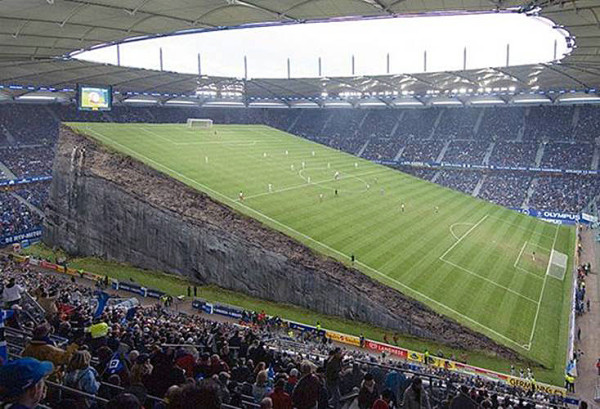 We employ a “midrange” definition of democracy: one that is demanding but mainstream and procedural. Following Dahl, scholars have converged around a “procedural minimum” definition of democracy that includes four key attributes:
We employ a “midrange” definition of democracy: one that is demanding but mainstream and procedural. Following Dahl, scholars have converged around a “procedural minimum” definition of democracy that includes four key attributes:
- regular elections that are competitive, free, and fair,
- full adult suffrage,
- broad protection of civil liberties, including freedom of speech, press, and association, and
- the absence of non-elected “tutelary” authorities (such as militaries, monarchies, or religious bodies) that limit elected officials’ effective power to govern.
These definitions are essentially “Schumpeterian,” in that they center on competitive elections. However, scholars have subsequently “precised” the concept of democracy by making explicit criteria—such as civil liberties and effective power to govern—that are implicitly understood to be part of the overall meaning, and which are viewed as necessary for competitive elections to take place.
Although we remain committed to a procedural minimum conception of democracy, we precise it by adding a fifth attribute: the existence of a reasonably level playing field between incumbents and opposition. Obviously, some incumbent advantage—in the form of patronage jobs, pork-barrel spending, clientelistic social policies, and privileged access to media and finance—exists in even the most established democracies. Nevertheless, these advantages neither systematically advantage one party nor seriously undermine the opposition’s capacity to compete. In other cases, however, incumbent manipulation of state institutions and resources is so excessive that it “impedes political competition”. Such “hyper-incumbent advantage“is clearly undemocratic.
A level playing field is implicit in most conceptualizations of democracy. Few analysts would classify as democratic a regime in which governing parties virtually monopolize access to the media and finance. Indeed, much of what we associate with an uneven playing field could be conceptualized as part of “free and fair elections” or “civil liberties.” However, there are two reasons to make this attribute explicit.
First, some aspects of an uneven playing field (including disparities in resources and media access) have a major impact between elections and are thus missed in evaluations of whether elections are “free and fair.” Second, some government actions undermine a level playing field but may not be viewed as civil liberties violations. For example, whereas closing down a newspaper is a clear violation of civil liberties, de facto governing party control of the private media, achieved through patronage deals or proxy arrangements—is not. Similarly, state-party-business ties that create vast resource disparities between incumbents and opposition are clearly undemocratic but are not civil liberties violations per se. Attention to the character of the playing field thus highlights how regimes may be undemocratic even in the absence of overt fraud or civil liberties violations.
We characterize as closed authoritarian all regimes that are non-competitive, in that no viable channels exist through which opposition forces may contest legally for power. This category includes regimes in which democratic institutions do not even exist on paper, as in China, Cuba, or Saudi Arabia. Yet it also includes regimes in which formal democratic institutions exist on paper but are reduced to façade or “window dressing” status in practice. In these regimes, which are often characterized as “pseudodemocratic” or “electoral authoritarian,” elections are so marred by 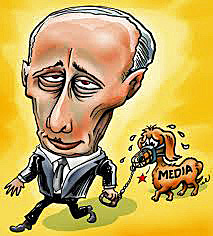 repression, restrictions on opposition candidates, and fraud that there is no uncertainty about their outcome. Though legally tolerated, much opposition activity is forced underground by repression, and leading regime critics are often imprisoned or exiled. Thus, in Nicaragua under the Somozas, Mexico at the height of PRI hegemony, and post-Cold War Egypt, Kazakhstan, and Uzbekistan, formal democratic institutions served primarily a legitimizing function; they were not viewed by the opposition as viable means to achieve power.
repression, restrictions on opposition candidates, and fraud that there is no uncertainty about their outcome. Though legally tolerated, much opposition activity is forced underground by repression, and leading regime critics are often imprisoned or exiled. Thus, in Nicaragua under the Somozas, Mexico at the height of PRI hegemony, and post-Cold War Egypt, Kazakhstan, and Uzbekistan, formal democratic institutions served primarily a legitimizing function; they were not viewed by the opposition as viable means to achieve power.
Competitive authoritarian regimes may be distinguished from closed authoritarian regimes in that legal and (semi) effective channels exist through which opposition parties compete seriously for power. Elections are held regularly, and opposition parties are not legally barred from contesting them. Opposition activity is above ground. Civil liberties are sufficiently respected for opposition parties to open offices, recruit candidates, and organize campaigns, and opposition figures are generally not exiled or imprisoned. In short, democratic procedures are sufficiently meaningful for oppositions groups to take them seriously as arenas through which to contest for power.
Yet competitive authoritarian regimes are not democracies. Although democratic institutions are sufficiently respected to permit real competition, they are violated to such a degree that competition is unfair, and opposition parties are seriously handicapped in their effort to challenge incumbents in elections, the legislature, the courts, and other public arenas. Competitive authoritarian regimes fall short on at least one—and usually more—of three defining attributes of democracy: (1) free elections; (2) broad protection of civil liberties; and (3) a reasonably even playing field.
Elections: In democracies, elections are free, in the sense that there is virtually no fraud or intimidation of voters, and fair, in the sense that opposition parties are able to campaign on relatively even footing: they are not subject to repression or harassment, and they are not systematically denied access to the media and other resources. In closed regimes, multiparty elections either do not exist (e.g., China, Cuba, Saudi Arabia) or exist but are non-competitive competitive in practice (e.g., Egypt, Uzbekistan). Elections may be considered non-competitive when (1) major candidates are excluded (via bans, imprisonment, or exile); (2) repression or legal controls make it impossible for opposition parties to sustain public campaigns; or (3) fraud is so massive that there is virtually no observable relationship between public preferences and electoral results.
Competitive authoritarian regimes fall in between these extremes. On the one hand, elections are competitive, in that major opposition candidates are not excluded; opposition parties are able to campaign publicly; and there is no massive fraud. On the other hand, elections are often unfree and almost always unfair. In some cases, elections are marred by at least some fraud, in the form of manipulation of voter lists (Dominican Republic 1994), ballot stuffing (Ukraine 2004), or falsification of results (Cameroon, Gabon). Although such measures may periodically alter the outcome 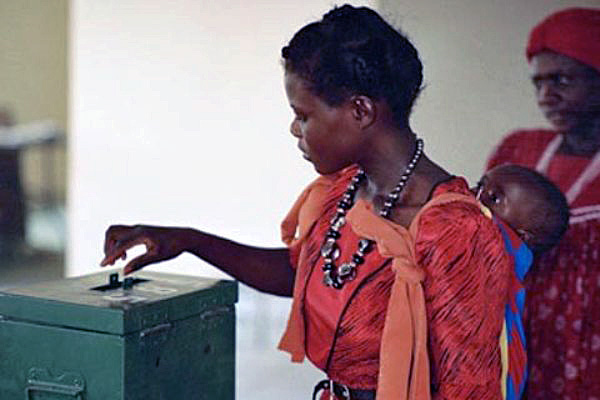 of elections, they are not so severe as to make the act of voting meaningless. Public opinion still very much matters. Elections may also be marred by large-scale intimidation of opposition activists, voters, and poll watchers, including the establishment of opposition “no go” areas (Cambodia, Georgia, Kenya, Russia, Zimbabwe). Nevertheless, these abuses are not sufficiently systematic to prevent the opposition from sustaining a national campaign.
of elections, they are not so severe as to make the act of voting meaningless. Public opinion still very much matters. Elections may also be marred by large-scale intimidation of opposition activists, voters, and poll watchers, including the establishment of opposition “no go” areas (Cambodia, Georgia, Kenya, Russia, Zimbabwe). Nevertheless, these abuses are not sufficiently systematic to prevent the opposition from sustaining a national campaign.
In other cases, voting and vote-counting processes are reasonably clean, but an uneven playing field renders the overall electoral process manifestly unfair. In these cases, incumbent control over the bulk of the media, massive abuse of state resources, and/or numerous forms of petty abuse by state agencies make elections unfair even in the absence of significant violence or fraud. Thus, although Mexico’s 1994 elections were technically clean, uneven access to resources and media led one observer to compare the election to a “soccer match where the goalposts were of different heights and breadths and where one team included 11 players plus the umpire [referee]and the other a mere six or seven players”.
Civil Liberties: In democracies, basic civil liberties, including rights of free speech and association, and a free press, are broadly protected. Although these rights may be periodically violated such violations are infrequent and do not seriously hinder the opposition’s capacity to challenge incumbents. In closed regimes, basic civil liberties generally either do not exist or exist on paper but are so systematically violated that citizens, civic and opposition groups, and media are not even minimally protected from state abuse (e.g., Egypt, Kazakhstan, and Uzbekistan). As a result, much opposition activity takes place either underground or in exile.
In competitive authoritarian regimes, basic civil liberties are formally guaranteed and are to some extent protected in practice. Significant independent media exist, and civic and opposition groups operate above ground: they meet, demonstrate, and criticize the government in public. Yet civil liberties are frequently violated. Opposition politicians, independent judges, journalists, human rights activists, and other government critics are subject to harassment, arrest, and in some cases, violent attacks. Independent media are frequently threatened, attacked, and in some cases, suspended or closed.
In some regimes, overt repression—including the arrest of opposition figures (Albania, Cambodia, Zambia), killing of opposition activists (Cambodia, Zimbabwe), violent repression of protest (Ethiopia, Kenya), or closure of independent media (Russia, Zimbabwe)—is widespread, pushing regimes toward full-scale authoritarianism.
More frequently, however, assaults on civil liberties take more subtle forms, such as surveillance and blackmail, denial of credit, licenses, and government contracts to opponents and their private sector backers, denial of licenses, newsprint, or state advertising to independent media, the selective use of tax and anti-corruption agencies to target critics, and the use of libel or defamation laws against media and other critics.
Although civil liberties violations in competitive authoritarian regimes are not systematic or severe enough to force opposition underground or into exile, they clearly exceed what is permissible in a democracy. By raising the cost of critical media coverage (and thus inducing much of the media into self-censorship) and opposition activity (and thus convincing all but the boldest activists to remain on the sidelines), even intermittent civil liberties violations can seriously hinder the opposition’s capacity to organize and challenge the government.
An Uneven Playing Field: Finally, competitive authoritarian regimes are characterized by a highly uneven playing field between incumbents and opposition. Obviously, at least some incumbent advantage exists in all democracies, and many new democracies are characterized by extensive clientelism and politicization of state bureaucracies. To distinguish such cases from cases of what Kenneth Greene calls “hyper-incumbency advantage,” we set a high threshold for unevenness. We consider the playing field uneven where: (1) state institutions are widely abused for partisan ends; (2) the incumbent group or party is systematically favored at the expense of the opposition; and (3) the opposition’s ability to organize and compete in elections is seriously handicapped. Three aspects of an uneven playing field are of particular importance: access to resources, media access, and access to the law.
Access to Resources: Access to resources is uneven where incumbents use the state to create or maintain resource disparities that hinder the opposition’s ability to compete. This may be done in several ways. First, incumbents may make direct partisan use of state resources, while denying other parties access to those resources. In a few cases, this state financing is legal. In Guyana and Zimbabwe during the 1980s, special public ministries existed to finance the activities of the governing party. More frequently, state financing is informal.
Incumbents may also make systematic use of the state’s infrastructure—including buildings, vehicles, communications equipment, and personnel—for electoral campaigns. In poor countries with weak private sectors, such as Cambodia, Guyana, Nicaragua, and Tanzania, this has given incumbents a vast resource advantage over opponents. In numerous countries, public employees were mobilized in large numbers to work for the governing party. In former Soviet countries such as Belarus, Russia, and Ukraine, this mobilization included not only low level bureaucrats but also teachers, doctors and other budget-financed professionals.
Incumbents may also use the state to monopolize access to private sector finance. Governing parties may use discretionary control over credit, licenses, state contracts, and other resources to enrich themselves via party owned enterprises (Taiwan), benefit crony proxy-owned firms that then contribute money back into party coffers (Malaysia), or simply corner the market in private sector donations (Mexico, Russia). In Taiwan, the KMT’s business empire–valued at more than $4.5 billion—made it “the richest party in the world”.
The state may also be used to starve opposition parties of resources. In Ukraine, for example, businesses that financed the opposition were routinely targeted by tax authorities. As a former head of Ukraine’s security services put it, “If [your business is] loyal to the authorities, they will ignore or overlook anything. If you are disloyal, you or your business will be quashed immediately”. In Russia, the Putin government went even further, effectively halting all major business contributions to the opposition. In Ghana, entrepreneurs who financed opposition parties “were blacklisted, denied government contracts and [had] their businesses openly sabotaged”, which left the opposition badly under-financed.
Access to Media: Where opposition parties lack access to (state or private) media that reaches most of the population, there is no possibility of fair competition. Media access may be denied in several ways. Frequently, the most important disparities exist in access to electronic media (television and radio), combined with highly biased and partisan coverage. In many competitive authoritarian regimes, the state maintains a monopoly over television and most—if not all—radio broadcasting. Although print media is often pluralist, with a diversity of independent newspapers and magazines circulating freely, these papers were often confined to a small urban elite. In poor, predominately rural societies (e.g., much of Africa), only a tiny fraction of the population read newspapers. In such cases, if radio and television are in the hands of the state, and state-run channels are biased in favor of the governing party, opposition forces are effectively denied access to the media. This was the case, for example, in Cameroon, Malawi, Zimbabwe, Nicaragua in 1990, Guyana through 1992, and Ghana, Kenya, Senegal, and Belarus, Georgia, Russia, and Ukraine through the early-to-mid-1990s.
Biased Referees: Uneven Access to the Law: In many competitive authoritarian regimes, the courts, electoral authorities, and other nominally independent arbiters of the rules of the game are not only controlled by incumbents (via packing, blackmail, bribery, or intimidation) but also are systematically employed as partisan tools against the opposition. Consequently, in electoral, judicial, and other critical disputes, agencies that are designed to act as referees rule systematically in favor of incumbents.
Incumbent manipulation of the legal system may affect political competition in several ways. First, where the judiciary is solidly under the control of the governing group or party, the government may violate democratic procedure with impunity. For example, the Fujimori government’s control over judicial and electoral authorities enabled it to violate legal and democratic procedure with impunity. Illegal acts included bribery, illegal surveillance, the stripping of media owner Baruch Ivcher’s citizenship, the massive forgery of signatures on behalf of the governing party, and the passage of dubiously constitutional legislation permitting Fujimori’s bid for a third term in 2000. In Ukraine, a packed Constitutional Court issued a dubious ruling permitting Kuchma to run for a third Constitutional Court to block parliamentary efforts to impeach him.
Second, incumbents may engage in “legal” repression, or the discretionary use of legal instruments—such as tax, libel, or defamation laws—as a weapon against opponents or the media. Although such repression may involve the technically correct application of the law, its use is selective and partisan, rather than universal. A spectacular example is Vladimir Putin’s use of the courts to destroy Mikhail Khodorkovsky, the owner of the enormously powerful Yukos oil company. In 2003, after Khodorkovsky began to finance opposition parties and expand his influence in the legislature, the government jailed him on tax charges, imposed enormous fines on Yukos, and seized company property and stock.
Perhaps the most widespread form of “legal” repression is the use of libel or defamation laws. In numerous countries, governments routinely used libel and defamation laws to arrest journalists and editors and/or suspend and even close down media outlets. In Croatia, independent newspapers were hit by more than 230 libel suits as of 1997. In Moldova, where the Communist Party packed the judiciary after taking office in 2001, the government had not lost a single libel case against journalists as of mid-2004. In some cases, the government’s repeated use of costly lawsuits led to the disappearance of many independent media outlets. In others, the threat of legal action led to widespread self-censorship (Malaysia, Ukraine). Defamation laws were also used against opposition parties. In 2005, for example, the Cambodian government orchestrated a flurry of libel and defamation suits against the opposition Sam Rainsy party, jailing several SRP legislators and forcing SRP leader Sam Rainsy to flee into exile.
Finally, partisan control over nominally independent electoral authorities may allow incumbents to engage in fraud and other forms of electoral abuse. In numerous cases, including Armenia, Belarus, Cameroon, Dominican Republic, Gabon, Haiti, Madagascar, Malawi, Tanzania, Ukraine, Zambia, and Zimbabwe, biased electoral authorities either directly engaged in fraud or tolerated fraud and other illicit acts committed by incumbents. In other cases, electoral and judicial authorities issued rulings that had a decisive impact on opposition chances. Examples include the decision to ban Kenneth Kaunda from the 1996 presidential election in Zambia and legalization of Fujimori’s presidential candidacy in Peru in 2000.
Competition without Democracy: Contestation and Uncertainty in Non-Democracies: Whereas fully closed regimes are characterized by the absence of legal competition (and hence, of uncertainty) and democracy is characterized by fair competition, competitive authoritarianism is marked by competition that is real (and often intense) but unfair.
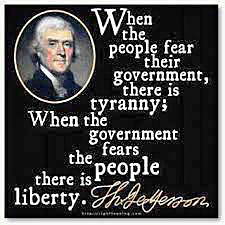 Formal democratic institutions are meaningful. Opposition parties are legal, operate above ground, and compete seriously in elections. However, they are subject to surveillance, harassment, and occasional violence, their access to media and finance is limited, electoral and judicial institutions are politicized and used as weapons against them, and elections are often marred by fraud, intimidation, and other abuse.
Formal democratic institutions are meaningful. Opposition parties are legal, operate above ground, and compete seriously in elections. However, they are subject to surveillance, harassment, and occasional violence, their access to media and finance is limited, electoral and judicial institutions are politicized and used as weapons against them, and elections are often marred by fraud, intimidation, and other abuse.
Yet such unfairness does not preclude serious contestation, and even occasionally opposition victories. Put another way, whereas officials in closed regimes can rest easy on the eve of elections, as neither they nor opposition leaders expect anything but an incumbent victory, incumbents in competitive authoritarian regimes cannot. Government officials fear a possible opposition victory (and must work hard to thwart it), and opposition leaders believe they have at least some chance of victory. In competitive authoritarian regimes, incumbents are forced to sweat.
What this suggests is that uncertainty and even incumbent turnover are not defining features of democracy. Influential scholars, particularly Adam Przeworski and his collaborators, have argued that what distinguishes democratic from non-democratic regimes is uncertainty of outcomes and the possibility of electoral turnover. Such a conceptualization ignores the very real possibility that serious violation of democratic procedure may occur in competitive elections. At times during the 1990-2005 period, elections in Albania, Armenia, Belarus, Cameroon, Cambodia, Gabon, Kenya, Madagascar, Malawi, Mozambique, Russia, Zambia, and even Zimbabwe, were characterized by considerable uncertainty and—in some cases—incumbent defeat.
However, none of them were democratic, and some were not even remotely so. We must therefore be able to conceptualize regimes that are sufficiently competitive to generate real uncertainty (and even turnover), but which fall short of procedural minimum standards of democracy. Such regimes were widespread during the post-Cold War period.
 Steven Levitsky is Professor of Government at Harvard University. He is currently engaged in research on the durability of revolutionary regimes, the relationship between populism and competitive authoritarianism, problems of party-building in contemporary Latin America, and party collapse and its consequences for democracy in Peru.
Steven Levitsky is Professor of Government at Harvard University. He is currently engaged in research on the durability of revolutionary regimes, the relationship between populism and competitive authoritarianism, problems of party-building in contemporary Latin America, and party collapse and its consequences for democracy in Peru.
 Lucan Way is Associate Professor of Political Science at the University of Toronto. He is currently working on a book that explores why certain autocracies – such as the USSR, Cuba, Iran, North Korea – have been so durable in the face of extreme outside pressure. The Durability of Revolutionary Regimes (with Steven Levitsky) examines the ways in which origins in violent revolutionary struggle generate robust authoritarian institutions. Professor Way is on the Editorial Board of Journal of Democracy.
Lucan Way is Associate Professor of Political Science at the University of Toronto. He is currently working on a book that explores why certain autocracies – such as the USSR, Cuba, Iran, North Korea – have been so durable in the face of extreme outside pressure. The Durability of Revolutionary Regimes (with Steven Levitsky) examines the ways in which origins in violent revolutionary struggle generate robust authoritarian institutions. Professor Way is on the Editorial Board of Journal of Democracy.

